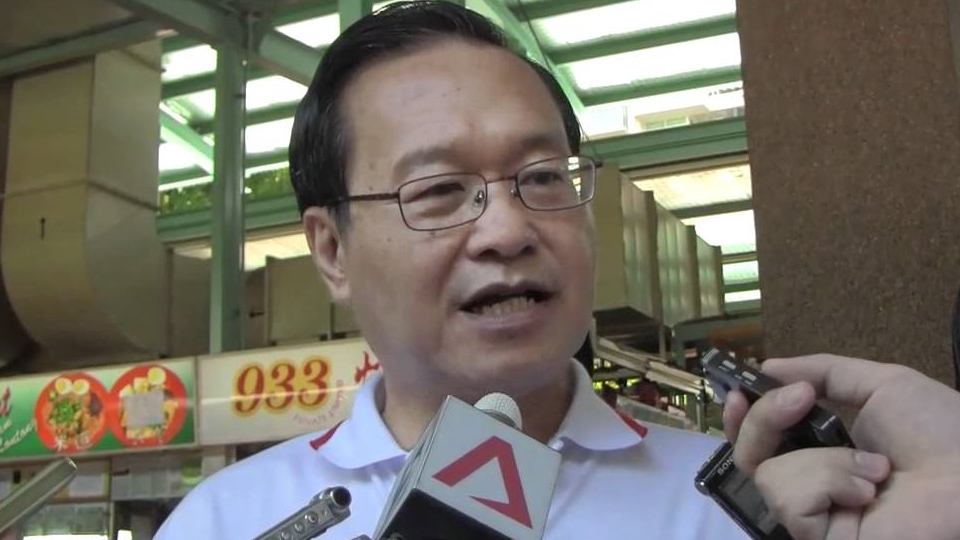SINGAPORE: Ex-presidential candidate and former NTUC Income chief executive Tan Kin Lian has indicated that he is undecided about whether he should contest the impending Presidential Election, even though he is eligible for the contest according to revised rules.
Having been a former member of the governing People’s Action Party (PAP) for 30 years, Mr Tan Kin Lian left the party in 2008 due to his inactivity and disagreements with the party’s value system. In the 2011 presidential election, he ran as an eligible candidate, highlighting his experience as the CEO of NTUC Income, an insurance cooperative with significant capital and assets.
However, Mr Tan Kin Lian received the lowest number of votes among the four candidates, losing his S$48,000 deposit. Despite this setback, Mr Tan’s experience with NTUC Income would likely make him one of the few qualifying under the revised criteria for private sector candidates.
In a statement on Thursday (6 July), Mr Tan Kin Lian indicated that he is open to putting himself forth as an independent and alternative choice but added that his hesitance comes from the fact that he and his family found their experience during the 2011 presidential race traumatic.
Revealing that the outcome of the four-cornered fight in 2011 was a “profound personal disappointment,” Mr Tan said:
“Having actively participated in the presidential election of 2011, my experience left me disheartened. Despite investing a significant amount of personal funds, exceeding $100,000, and enduring a grueling campaign that spanned several weeks, I received less than 5% of the votes and lost my $50,000 deposit.”
He added that the election’s aftermath proved “equally challenging” as some blamed him for splitting votes and causing Tan Cheng Bock to lose the race. Calling such claims “unjust,” Mr Tan said: “Such baseless and malicious accusations implied that the presidency was somehow owed to Tan CB, undermining the essence of fair competition.”
Initially, Mr Tan believed that he would not be eligible for the upcoming race since he retired from full-time work more than 16 years ago, surpassing the qualifying period of 15 years that was in place during the 2011 election.
However, he recently learned that the qualifying period had been extended to 20 years, making him the only qualifying prospective candidate from the three candidates who lost the 2011 election.
Mr Tan Cheng Bock and Mr Tan Jee Say would not meet the revised eligibility requirement of running an organization with shareholder’s equity of $500 million, an increase from the $100 million requirement in 2011.
Mr Tan, however, said: “Despite my eligibility, I find myself uninterested in pursuing the presidency. I am now 75 years old, and my family members strongly object to my involvement due to the traumatic experiences they endured during the previous election, including ridicule from certain individuals who knew them.”
At the heart of Mr Tan’s dilemma appears to be his aversion to seeing Senior Minister Tharman Shanmugaratnam get elected without contest by walkover.
While Mr Tan welcomes the prospective candidacy of entrepreneur George Goh Ching Wah, he said that the shroud of doubts over whether Mr Goh will qualify for the race had left his friends urging him to throw his hat into the ring. Mr Tan said:
“I was happy to learn that George Goh has expressed interest and enthusiasm in participating as an independent candidate, offering a refreshing alternative to the ruling party. He has assembled an impressive team and devised a compelling campaign strategy. Unfortunately, some friends have informed me that George Goh does not meet the candidacy requirements and is unlikely to be approved.
Under these circumstances, my friends have urged me to enter the race in order to prevent a walkover. They perceived that it is a “duty” for me to participate, given my eligibility.”
Asking whether voters would actively support his candidacy given that he might put himself forth as part of a “duty” to give people a choice, Mr Tan added:
“One suggestion proposed that I submit my application for eligibility and, in the event that George Goh’s candidacy is approved as well, I could withdraw my application to avoid splitting the votes. This course of action would be seen as a noble gesture made in the interest of the people.
However, if George Goh’s candidacy was rejected, I might have to stand against the candidate supported by the ruling party and would face significant disadvantages. Without the backing of a political party, I would struggle to effectively reach out to the people and communicate my message.”
He asked, “What should I do? As the days unfold, I hope for some form of enlightenment that may provide clarity and guidance regarding my potential involvement in the upcoming election.”
In a separate Facebook post, Mr Tan posted a screenshot of a WhatsApp conversation with a journalist. He deflected her queries about whether he will stand in the looming election.
The screenshot shows The Straits Times editor Grace Ho inquiring whether anyone had collected the application form for a Certificate of Eligibility (COE) from the Elections Department on Mr Tan’s behalf. Mr Tan said no one had done so.
When asked about his intention to run for the presidency, he playfully responded: “I have leg pain. I am now seeing my doctor. I can’t run.”

Read also:
The “true independent” Tan Kin Lian grew NTUC Income’s assets from millions to billions
Calvin Cheng predicts a two-horse Presidential race — Tharman and Tan Kin Lian
Presidential hopeful Tan Kin Lian raises concern over tight timeline
Tan Kin Lian launches second bid for presidency, aims to restore trust and hope

